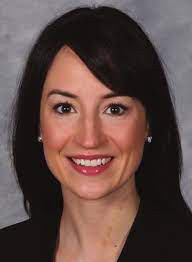New Schwarz Partners joint venture
If you Google “STS Packaging,” you probably won’t find it. At least not yet.
The brand-new foodservice packaging company hasn’t launched its website or completed work on its primary facility, a new plant near the Indianapolis airport. Yet STS is already making an impact. In fact, it has filled its slate with contracted projects for most of 2023.
A joint venture formed by Jeff and John Schwarz and STS managing partners Matt Cook and Bill Weimer, STS creates a new vertical market for Schwarz Partners in the foodservice packaging industry.

The company’s early success likely has something to do with the fact that Matt and Bill, along with Lauren Mikos, the company’s president, have 70+ years of combined experience manufacturing products for some of the country’s most beloved brands, including Starbucks, McDonald’s, Chick-fil-A and Dunkin’ Donuts.
“We’re creating a product employees can see in their everyday lives — every time they go to a drive-thru. That’s pretty cool.”
— Lauren Mikos, President, STS Packaging
How can a company become so successful so fast? Get the full story — along with the facts about STS and the people behind it — in this Q&A.
What does STS do?
Formed earlier this year, STS manufactures foodservice packaging for large restaurant chains. “Our main categories are over-the-counter, delivery, takeout, catering and bakery,” Matt explained. “We specialize in sustainable fiber-based products that are recyclable and compostable.”
What does STS stand for?
Bill came up with the name. STS stands for Square Top Schwarz. “It’s a play on the original company we founded, Square Top Capital Partners, with a reference to Schwarz Partners,” Bill said.
Where is STS located?
The new company will be based in the Indianapolis area. A specialty finishing plant in Mooresville, Ind., just west of the Indy airport, will focus on microflute corrugated and solid board applied to a variety of fiber-based products.

“We’re the first tenant,” Matt said of the facility, which will begin production later this year. “We’ve already procured a lot of equipment, and in October we’ll start moving in.”
Another STS facility in Charlotte, North Carolina, manufactures takeout bags. It’s already up and running, and it has the potential to create other lightweight paper-based items such as sandwich wraps.
How is Schwarz Partners involved with the company?
STS is structured as a joint venture. “It’s truly a partnership,” Matt said. STS benefits from Schwarz Partners’ resources and infrastructure and Schwarz Partners benefits from the STS team’s expertise and relationships in foodservice packaging.
“This didn’t happen overnight,” said Matt, who has been a Schwarz Partners customer and co-op partner for over 20 years. “We have a long history with Jeff, John and Jack. And Schwarz Partners is willing to invest in where the industry is going. Their culture helps us all stay nimble and move quickly.” That’s important, because supply chain challenges during and after the pandemic have caused gaps that STS plans to fill. “There’s so much new demand,” Matt said.
In its early stages, STS will focus on the front end of the business — sales and marketing, innovation, operations and manufacturing. Schwarz Partners provides accounting and treasury services, legal, human resources, IT, engineering and supply chain management. “We’ll eventually do our own HR, accounting and treasury, but we’ll continue to rely on Schwarz Partners for IT, engineering and supply chain management,” Bill said. “That core is invaluable.”

Tell us more about the STS leaders.
Together, Lauren, Matt and Bill bring more than 70 years of experience in foodservice packaging to the company. Bill and Matt serve as managing partners with support from Jeff and John Schwarz.
“As president, Lauren is the boss, and will handle day-to-day aspects of the business,” Matt said. “She’s beyond brilliant, and it’s our goal to empower her to do great things.”
Lauren has 20 years of experience managing clients, products, marketing, mergers and acquisitions — even an innovation startup. She aims to make STS “a packaging provider of choice for North America’s most revered restaurant brands.” She also wants STS to be an employer of choice. “Working at STS will be a lot of hard work in the beginning, but it’s also going to be a rewarding experience,” she said. “We’re creating a product employees can see in their everyday lives — every time they go to a drive-thru. That’s pretty cool.”
How do the leaders work together?
“As CEO Matt will focus on the customer and the market and will be one of our best sales advocates,” Lauren explained. “He’ll be out in the marketplace, looking at potential customers and acquisitions. That’s what he’s passionate about.”
Lauren has known Matt for all her 20 years in the foodservice packaging business, working for his former company, LBP Manufacturing, for 16 years. “That’s where I met Bill seven years ago,” she said. “He’s one of my favorite CFOs. He’s focused on the numbers, but he really gets the big picture, too. He and Matt make a great duo. Matt’s the big-idea guy, and Bill helps make ideas become practical realities.”
As CFO at STS, Bill will be involved with acquiring businesses as well as the financial aspects and the operating side of running the business. Lauren has the role of operating the company day-to-day and building out the team.
What’s different about what STS is doing now and what the team did in the past?
“We’re looking at new products — paper bags, bakery items and catering,” Matt said. “We’re planning to focus on a handful of projects where we can deliver innovation and sustainability.”
What about the rest of the team?
“We’re hiring now!” Bill said.
STS currently employs 100 people, and 70 or 80 of those positions are at the Charlotte plant. “We’ll be up to 300 employees in the next six months, including 125 positions at the Mooresville plant.”
Lauren is focused on filling those positions. After that, she’ll hire about 20 people for leadership roles in Charlotte and Indianapolis, including positions in sales, safety, operations and supply chain.
Applicants don’t necessarily need experience in foodservice packaging, Lauren said. But she did note that she’s “biased toward people who have worked in the fiber-based packaging world”— whether that’s corrugated sheets or boxes. (To learn about current openings, go to careers.schwarzpartners.com.)
What are the company’s long- and short-term goals?
“Our goal is to have a national footprint in foodservice packaging,” Lauren said. “In the beginning we’ll serve clients in ways they’re not being serviced today,” Matt added. “We want to capitalize on our history with our customers and help them grow.”
What’s the STS vision?
“We plan to serve large brands and national account chains,” said Lauren, who wants to do more than just fulfill orders. “We want to have direct relationships with our customers so we can understand everything about their operation, from how they prepare their food in the kitchen to how their crew members use packaging as they prepare orders,” she said. “Those relationships start with a simple conversation, and by asking: ‘What are you struggling with? How can we help? Where are the areas where you have gaps?’”
Lauren and her team want to understand customers’ goals and partner with them to help them solve their packaging challenges. That includes helping them be creative with their food menus and how they serve their customers. “I want us to become known for our innovative solutions, whether we create them on our own or take a fledgling idea to the next level,” she said. “Thanks to our partnership with Schwarz Partners, we’ll have the scale, size and ability to do that with fiber-based packaging.”
What won’t STS do?
“We definitely don’t want to try to be everything to everyone,” Lauren said. “We’re never going after the commercial distribution business, We want to produce fiber-based packaging that will be used in large chain restaurant organizations. That’s our niche and strength — the knowledge, systems and know-how to serve complex customers. There’s a great market for that, and a need for supplier diversity today. The pandemic really made that clear. So much has changed, and there’s a great opportunity for us to think about that and pick up a lot of business.”
Can you tell us more about that — the impact of the pandemic on the business?
“For two years restaurants and fast-food chains survived through their apps and delivery partners,” Lauren said. “There was packaging out the door with every transaction. Before COVID, some packaging was used in the store, but not the same amount. But during COVID the amount of packaging needed went through the roof.”
That really reshaped a lot of relationships and dynamics of the industry, Lauren said. “Prior to COVID, the customers had all the power. They’d say, ‘You need to have X product by Y date and if issues presented in meeting that demand, there was typically another outlet for the customer to fulfill that need. Then COVID happened, and it really changed the balance of power. For the first time in 20 years working in this industry, the demand for packaging outpaced supply.”
It became clear to Lauren that packaging companies can form partnerships and build strong, transparent relationships that can be mutually beneficial. “That’s what I mean by not being everything to everyone,” she said. “I want to partner with customers who are looking beyond the transaction. It may sound something like: ‘I’m thrilled STS is putting this new facility in Indianapolis and we want to commit business to this facility.’ And customers will have to be willing to wait or invest and help us solve challenges that weren’t there before.”
Tell us more about your focus on innovation and sustainability.
It begins with understanding your customers — their business and what’s meaningful to them, Lauren said. “What requirements are needed from a quality perspective? At the end of the day we’re manufacturing direct food contact packaging, which in this industry is regulated in a similar way to food ingredients.” Foodservice packaging also includes graphics and promotions, so you’ve got to consider that aspect as well.
“From a packaging perspective, if you’re a restaurant you’re trying to find ways to package your food products so they travel well, retain heat and manage moisture. That’s always the goal,” Lauren said. “The next question is: How do we use paper to do that? How can we help it become a more functional material instead of other materials that may start to be perceived as problematic?”
Consumer activism has an impact, too. Lauren, who recently moved from New Jersey to Chicago, shared that grocery stores in New Jersey no longer offer customers shopping bags. Straws have moved to paper, too.
“When legislation gets involved, it typically drives a response for product innovation, and that’s where the sustainability angle comes in,” she said. “If you start with paper materials, you’re in a good position because they’re natural and renewable. You can grow more trees. And paper is one of the most recycled materials in the world.”
On the other hand, PFAS, a group of manufactured chemicals found in paper today, are raising concerns. “At STS, we’re not starting out with any of those materials,” Lauren said. “We’re going to go right to the cleanest version of materials we can get so that we’re already doing the right thing from a legislative perspective, and we’re also choosing a sustainable business solution. Sustainability isn’t always just about recycling. It’s so much more.”
Lauren’s focus on sustainability extends to the Mooresville facility, where she’s choosing sustainable options like LED lighting and electric trucks.
What’s exciting about STS?
“We’re starting from scratch,” Bill said. “We’ve learned a lot from the past, and we have no legacy challenges to work through. We’re constructing the business with a clean state.”
“I’m surprised and delighted by what we can do with Schwarz Partners,” Matt said. “It’s truly 1 + 1 = 5. Schwarz Partners isn’t well known in the foodservice side of the business, so out of nowhere we’ve been able to show up with a big industry player. Schwarz Partners buys millions of tons of paper — more than anyone in the foodservice business. That scale of raw material purchasing power and supply chain is having a massive impact. Customers are rewarding us with one opportunity after another. The other part is our ability to use existing Schwarz Partners equipment. Industrial packaging equipment can be used to manufacture foodservice packaging. This means new business for existing Schwarz Partners facilities.”
“I’m excited to build this company and provide opportunity,” Lauren said. “I’m a huge believer in teams, and our success will always come from the people we’re fortunate to find that want to join our team. I’m also excited about the investment that Schwarz Partners and Matt and Bill took to create STS. What’s happening here is very special. It’s rare to start new packaging companies in this industry. I think that should be a point of pride for anyone who joins the STS team.”
Want to get involved in something new?
To learn about current openings at STS, go to careers.schwarzpartners.com.







